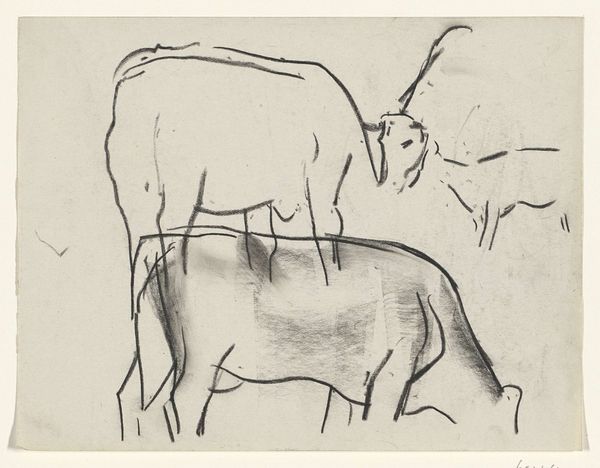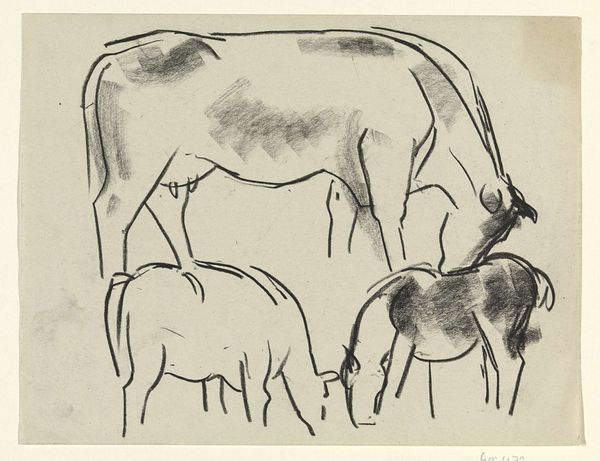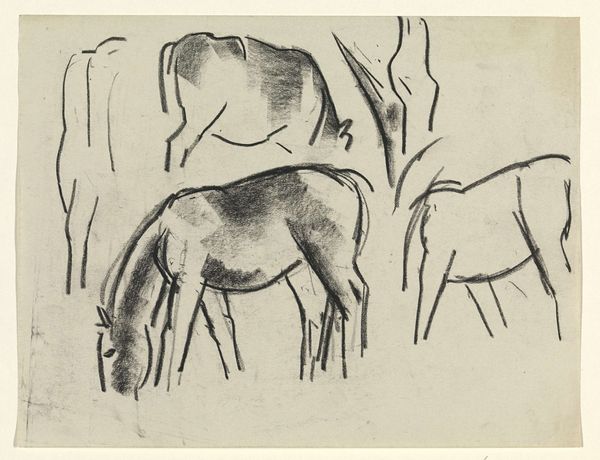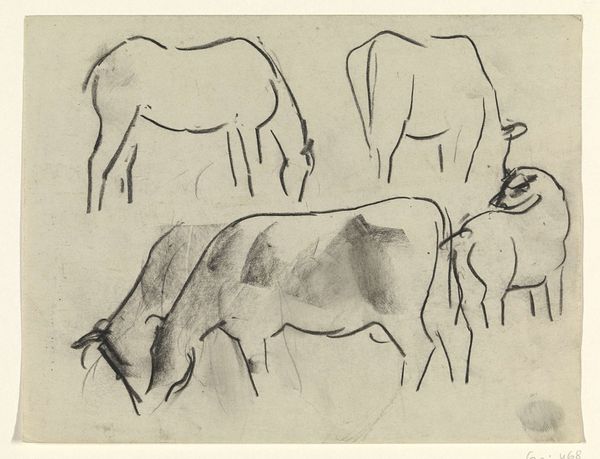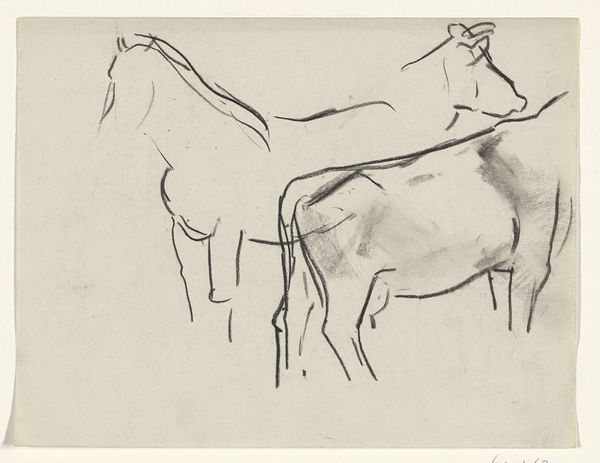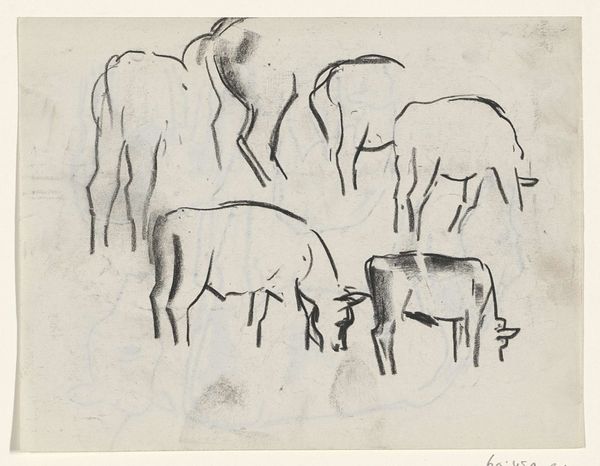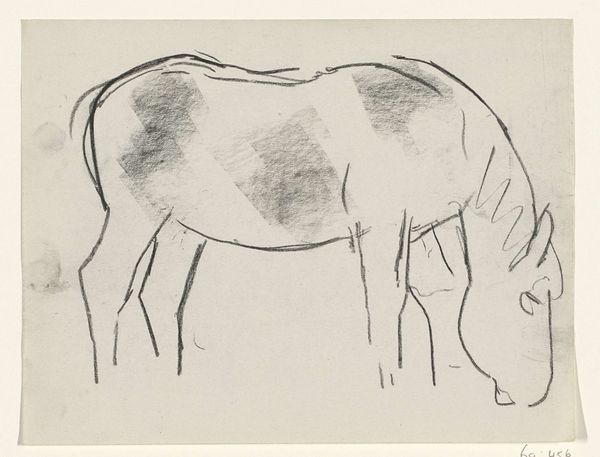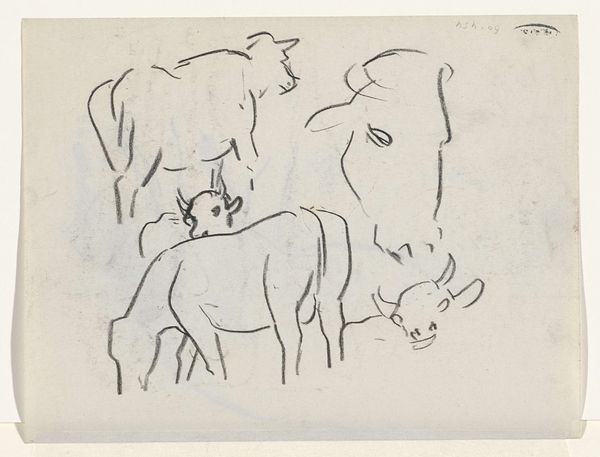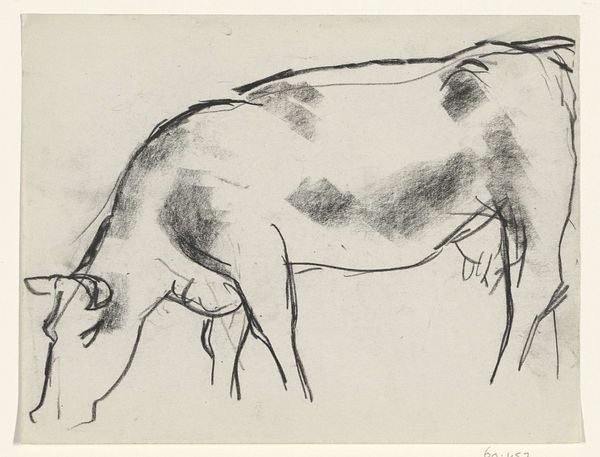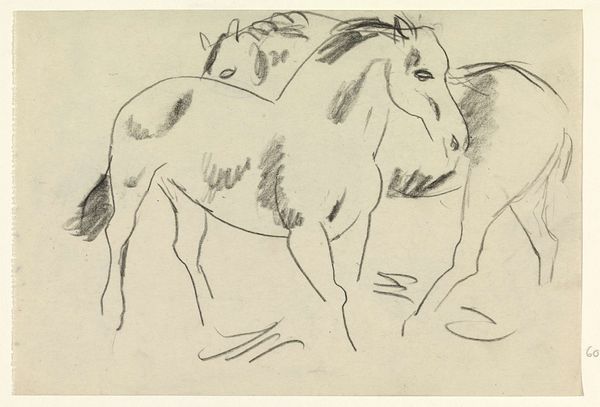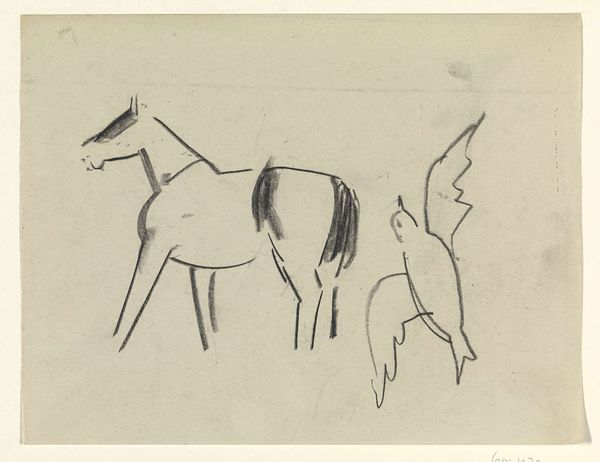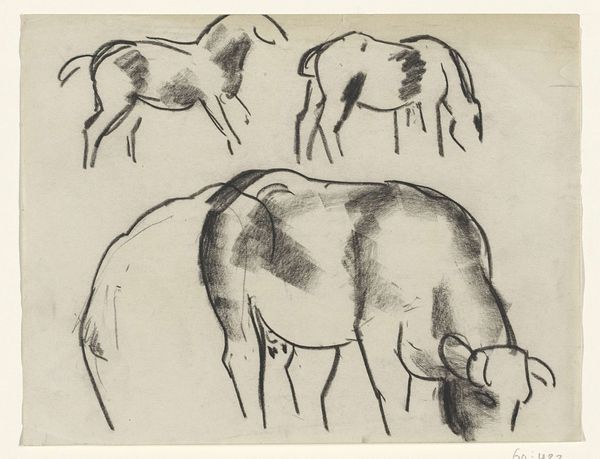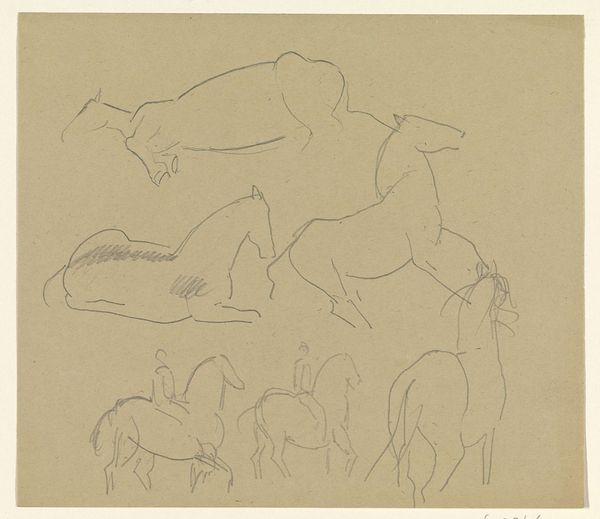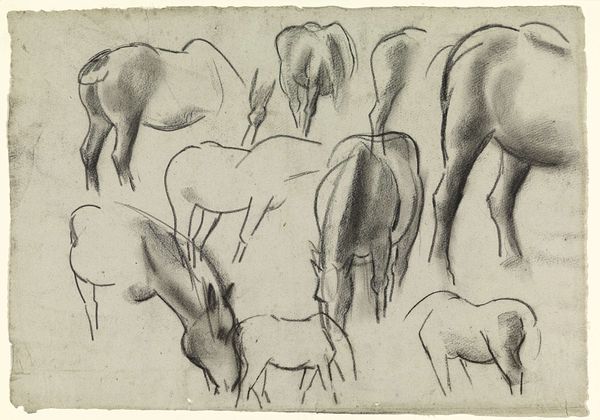
drawing, graphite
#
drawing
#
imaginative character sketch
#
light pencil work
#
quirky sketch
#
landscape
#
cartoon sketch
#
figuration
#
personal sketchbook
#
idea generation sketch
#
ink drawing experimentation
#
pen-ink sketch
#
horse
#
line
#
graphite
#
sketchbook drawing
#
sketchbook art
Dimensions: height 163 mm, width 212 mm
Copyright: Rijks Museum: Open Domain
Curator: Here we have a pencil and graphite drawing entitled "Drie grazende koeien en twee paarden," which translates to "Three Grazing Cows and Two Horses" by Leo Gestel, made sometime between 1891 and 1941. It's part of the collection here at the Rijksmuseum. Editor: My immediate impression is of lightness and fluidity. The sketch has a playful, almost childlike quality despite the serious subject of farm animals at rest. The lines are so economical. Curator: Gestel manages to convey quite a bit with minimal markings, doesn't he? Notice the varying pressure applied with the pencil, particularly in the shading of the cows which adds depth and dimension. The cultural resonance, to me, feels rooted in the enduring pastoral tradition, where animals symbolize harmony and the bounty of nature. Editor: Yes, the tonal variations create a sense of volume. The forms are reduced to their essence—ovals, cylinders—which is rather pleasing. It reminds me of certain experiments in early Modernism, stripping down representation to basic elements. Curator: I also find an echo of older Dutch pastoral scenes here, simplified and abstracted, yet holding the essence of that deep connection to the land that resonates throughout Dutch cultural memory. This harkens back to agrarian myths—the landscape nurturing our human condition. Editor: Myth, certainly, but also a structural elegance. See how the composition is arranged? The animals are distributed almost geometrically, creating visual balance. It isn’t just a random collection of beasts. Gestel is composing, arranging a visual symphony with simple lines and shading. Curator: Absolutely. Gestel is consciously invoking familiar archetypes – animals as providers, the fertile field promising future sustenance. The horse as nobility of labour in counterpoint to the docile cow. These symbolic links add an essential, historical depth to his artistic gesture. Editor: It makes you wonder what these economical strokes obscure? What other sketches litter this page? Curator: I think what's especially lovely is the intimate glimpse we're given into the artist’s process. We, too, become a part of Gestel's private musings, considering the cultural implications behind common agrarian figures. Editor: Precisely. A simple sketch that sparks volumes.
Comments
No comments
Be the first to comment and join the conversation on the ultimate creative platform.
